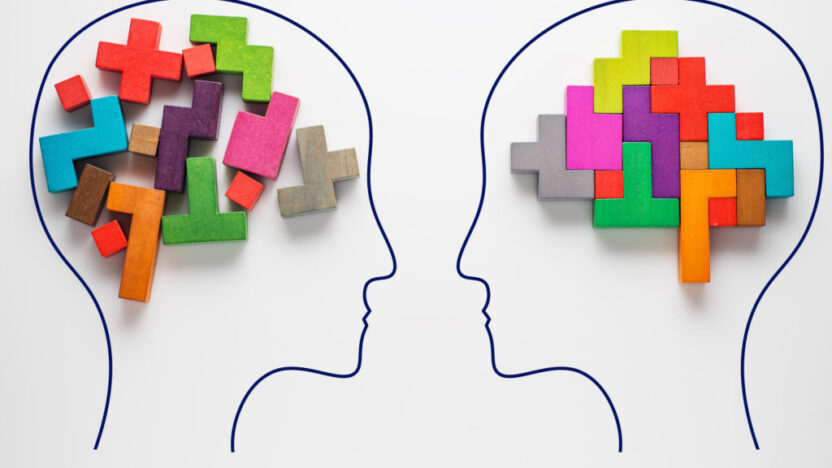
In today’s fast-paced world, understanding and mastering emotional intelligence is not a luxury but a vital necessity for thriving both personally and professionally. Many individuals struggle to build meaningful relationships and navigate their complex emotional landscapes, leading to stress, workplace challenges, and personal dissatisfaction. This article offers a step-by-step guide with practical strategies to enhance your emotional quotient. You’ll uncover key insights, cutting-edge research, and actionable techniques aimed at transforming your emotional well-being to overcome daily obstacles and build resilient interactions. If you’ve ever wondered how to manage your emotions more effectively and achieve personal growth, you are about to discover proven methods to pave the way to success.
Understanding Emotional Intelligence: Definition and Key Components
Emotional intelligence (EI) refers to the ability to perceive, understand, and manage emotions—both in oneself and in others. In psychology, it is recognized as a vital skill that enables individuals to navigate complex social situations, resolve conflicts, and positively influence interpersonal relationships. Experts argue that EI is just as important as cognitive intelligence for both professional success and personal fulfillment.
This multifaceted concept includes key components such as self-awareness, self-regulation, motivation, empathy, and social skills. Each element plays a crucial role in how we relate to others and contributes to a well-rounded emotional capacity. Research over the past decades has confirmed that strengthening these components can significantly boost mental health and overall well-being.
Understanding EI also involves recognizing the interplay between cognitive processes and emotional responses. For example, when facing a stressful situation at work or in personal life, those with high EI can pause, assess their emotional state, and respond constructively. This level of control provides a strategic advantage over reacting impulsively in challenging circumstances.
The Science Behind Emotional Intelligence

The study of emotional intelligence bridges various fields such as psychology, neuroscience, and behavioral science. Advances in neuroimaging now allow researchers to observe which regions of the brain are activated during emotional processing. This research provides robust evidence that our brains possess an innate capacity for emotional regulation—a skill that can be nurtured over time.
Findings indicate that individuals with well-developed EI exhibit enhanced activity in the prefrontal cortex, a region linked to decision-making, problem-solving, and social behavior moderation. These findings support the notion that emotional intelligence is not a fixed trait but a dynamic skill that improves with conscious effort and practice. Studies, including those published by the American Psychological Association, have quantitatively linked EI to better stress management and improved mental health.
Moreover, scientific evidence shows that the brain’s plasticity enables individuals to rewire their emotional responses. With consistent exercises and behavioral modifications, even long-standing reactive patterns can be reshaped. Below, we explore some practical techniques that utilize these neurological insights for everyday enhancement.
Practical Techniques for Developing Emotional Intelligence

Developing emotional intelligence requires dedication and a commitment to daily practices that challenge old habits. One of the first steps is cultivating self-awareness: spend time reflecting on your emotional responses and identifying their triggers. Keeping a journal or using digital tools to monitor your feelings throughout the day can be extremely beneficial.
Mindfulness meditation is another highly effective technique. This practice encourages you to focus on the present moment, thereby reducing the tendency to become overwhelmed by stressors. Numerous studies back the benefits of mindfulness in improving emotional regulation, enhancing empathy, and reducing impulsive reactions.
Additionally, engaging in active listening exercises can significantly boost your empathy and social skills. By truly focusing on what others say without immediately planning your response, you can better understand their emotional states and develop deeper, more authentic connections. These methods are valuable in both personal and professional contexts, promising tangible improvements over time.
Case Studies and Success Stories in Emotional Growth

Real-life examples illustrate theoretical concepts in a relatable way. Consider the story of a mid-level manager who, after experiencing recurring workplace conflicts, dedicated time to learning and applying emotional intelligence techniques. By integrating evidence-based practices into his routine, he not only reduced his stress levels but also markedly improved team collaboration and job satisfaction.
Another inspiring example is that of a teacher who transformed her classroom environment by fostering emotional awareness among her students. Through consistent exercises focused on empathy and self-regulation, her students exhibited notable improvements in behavior and academic performance.
These success stories underline that emotional intelligence is a powerful tool capable of reshaping both personal and professional relationships. Small, incremental changes, when practiced consistently, lead to substantial improvements in mental and emotional well-being.
Implementing Emotional Intelligence in Daily Life and Future Trends
Integrating the principles of emotional intelligence into your daily routine can be transformative. Start by dedicating a few minutes each day to reflect on your emotions through journaling or meditation. Regular practice of these techniques not only alleviates stress but also develops stronger, more responsive interpersonal skills.

Seek out opportunities to practice empathy, whether through volunteering or by engaging in more thoughtful conversations with family and friends. Over time, these deliberate actions help your mind adopt new, positive patterns of emotional responses, creating a more balanced and resilient emotional framework.
Looking forward, emerging trends in psychology and technology are set to revolutionize emotional intelligence training. Digital tools, mobile applications, and virtual reality environments are being developed to simulate emotional challenges and provide personalized feedback. Embracing these innovations can accelerate your personal growth and make the benefits of EI accessible to everyone.
Contenido Adicional
Beyond the practical insights provided, it is important to recognize that emotional intelligence is a lifelong journey, evolving with every experience. Psychological research consistently shows a strong link between EI and improved mental health outcomes, such as reduced anxiety and depression. By incorporating daily practices, you become better equipped to turn challenges into opportunities for personal growth.
The influence of your environment—whether at home or at work—is critical in nurturing emotional development. Establishing a strong support system that encourages open discussions about feelings can greatly enhance your resilience. Trusted friends, family, or professional networks can provide the necessary feedback for deeper emotional understanding and healthier communication.
Additionally, social media and digital communities are emerging as powerful allies in the journey toward enhanced EI. Online forums and discussion groups offer spaces to share experiences, exchange strategies, and provide motivational support, bridging the gap between academic theory and practical application.
Cultural perspectives also play a significant role in shaping emotional intelligence. In our globalized world, diverse approaches to emotional expression enrich our understanding and foster deeper interpersonal connections. Learning from other cultures can broaden your empathetic horizons and refine your approach to emotional management.
Cultural perspectives also play a significant role in shaping emotional intelligence. In our globalized world, diverse approaches to emotional expression enrich our understanding and foster deeper interpersonal connections. Learning from other cultures can broaden your empathetic horizons and refine your approach to emotional management.
Developing emotional intelligence is an ongoing journey that demands persistence, self-reflection, and a readiness to step beyond your comfort zone. As we have explored, combining practical steps with scientific insights and real-life examples can create meaningful improvements in emotional regulation, empathy, and relationship management. Remember, every path is unique and progress may be gradual. Embrace the process, apply the techniques provided, and commit to continuous growth. Let your improved emotional intelligence become the cornerstone of a more fulfilling, balanced, and resilient life.




